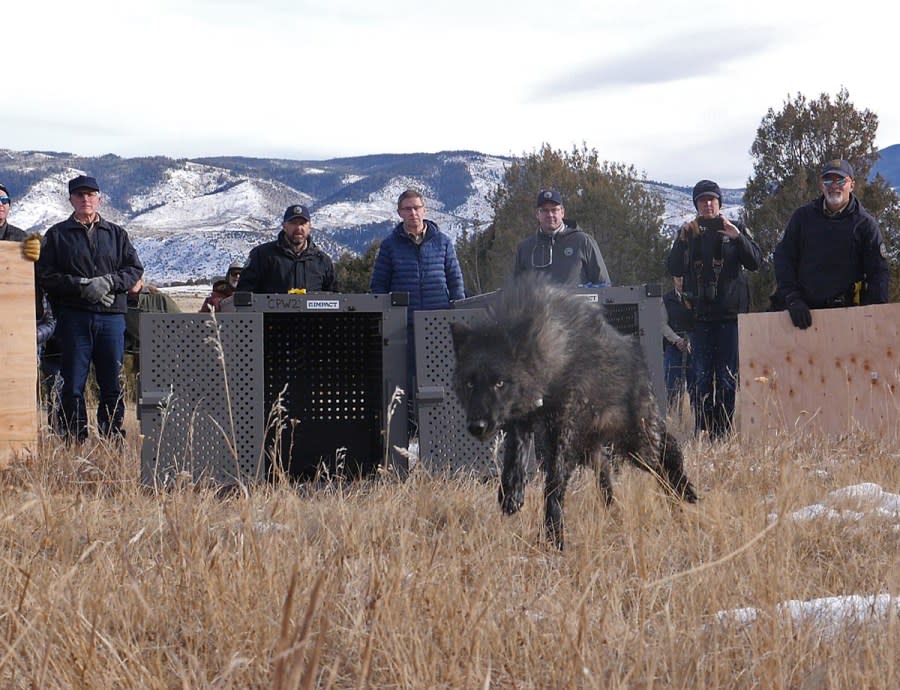Colorado wildlife officials to relocate Copper Creek wolf pack
DENVER (KDVR) — Citing livestock depredation, Colorado wildlife officials are capturing and relocating the Copper Creek pack of reintroduced wolves and their pups.
The Copper Creek pack comprises the first reintroduced wolves to reproduce since they were released into the state in December, along with at least three pups.
Electrocuted birds to blame for brush fire in Roxborough
Colorado Parks and Wildlife said in a release Tuesday night that officials continue to implement the voter-approved wolf reintroduction plan while working to reduce wolf depredation.
“The decision to capture and relocate the Copper Creek pack was made with the careful consideration of multiple factors and feedback from many different stakeholders,” CPW Director Jeff Davis said in a statement. ”Our options in this unique case were very limited, and this action is by no means a precedent for how CPW will resolve wolf-livestock conflict moving forward. The ultimate goal of the operation is to relocate the pack to another location while we assess our best options for them to continue to contribute to the successful restoration of wolves in Colorado.”
CPW said it will not release the location where it brings the wolves “for the safety of these animals and staff.”
Three healthy wolf pups were caught on camera just weeks ago in Grand County, with wildlife officials estimating they are about 4 months old and weigh 40-50 pounds. The department first noted the possibility of wolf pups in April, after ranchers asked the state to lethally remove two wolves in Grand County that were depredating livestock.
CPW’s log of wolf depredation incidents shows two dozen animals involved in depredation incidents from April to July. A confirmed depredation means the animal suffered physical trauma that resulted in injury or death.
Wolves breed once a year during the late winter months, usually around mid- to late February, according to CPW. Pups are born about two months later in the spring and usually disperse between 1-2 years old.
FOX31 Newsletters: Sign up to get breaking news sent to your inbox
Wild wolves usually only survive around 3-4 years, CPW said.
CPW encourages anyone who spots a wolf to complete a wolf sighting form here. The information helps biologists monitor the wolf reintroduction program.
Copyright 2024 Nexstar Media, Inc. All rights reserved. This material may not be published, broadcast, rewritten, or redistributed.
For the latest news, weather, sports, and streaming video, head to FOX31 Denver.


